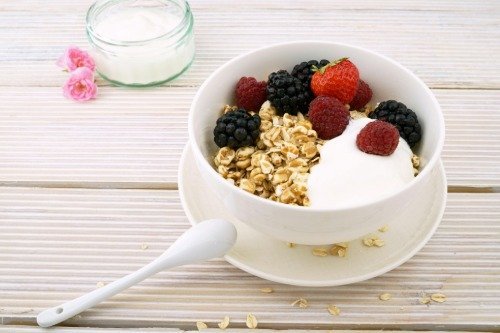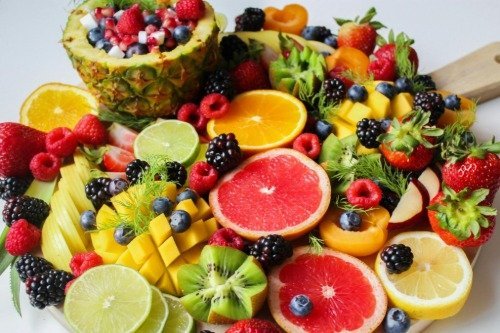In today’s wellness-driven world, we’re constantly bombarded with food trends that promise to help us become healthier and more energetic. From gluten-free options to plant-based snacks, it’s easy to believe that these foods are doing our bodies a favor. But for many men, some of these so-called “healthy” foods may be sabotaging their testosterone levels. Testosterone is the hormone responsible for everything from muscle growth and fat distribution to mood regulation and libido. So, if you’ve been noticing a dip in your energy or strength, it could be time to reassess your diet. Let’s dive into three categories of foods that might be quietly wrecking your testosterone levels.
1. Plant-Based Foods That Can Increase Estrogen

Plant-based diets have gained massive popularity in recent years, and for good reason: they’re often nutrient-dense, eco-friendly, and linked to a reduced risk of heart disease and certain cancers. However, some plant-based foods contain compounds that can mimic estrogen in the body, potentially lowering testosterone levels. These are called phytoestrogens, and they’re most commonly found in soy products such as tofu, tempeh, edamame, and soy milk.
While phytoestrogens are naturally occurring and can be beneficial in certain quantities, consuming large amounts of soy can interfere with your body’s hormonal balance. Studies have shown that consuming high amounts of soy can lead to reduced testosterone production, especially in men who already have low levels of the hormone.
But don’t panic — this doesn’t mean you have to completely ditch plant-based options from your diet. It’s all about moderation. Enjoy your tofu stir-fries and plant-based burgers, but be mindful of how often you include them in your meals. If you’re looking to boost testosterone, you might want to look for plant-based protein sources that are lower in phytoestrogens, like lentils, chickpeas, quinoa, and beans.
2. Low-Fat Dairy: The Hidden Culprit

It’s no secret that dairy has been a staple in many people’s diets for decades. From cheese to yogurt to milk, dairy products are often seen as a healthy choice, packed with calcium and protein. But when it comes to testosterone levels, not all dairy products are created equal — especially low-fat versions.
You may be thinking, “Low-fat dairy is healthier, right? It has fewer calories and is better for weight management.” While that’s true in some respects, low-fat dairy can contain added sugars, artificial flavorings, and other additives that may harm your hormones. Additionally, studies have suggested that certain dairy products, especially those that come from cows treated with growth hormones, may disrupt your body’s natural hormone production.
Whole milk, on the other hand, contains natural fats that help your body absorb fat-soluble vitamins and nutrients, which play an essential role in hormone production, including testosterone. Switching to whole dairy may actually help improve your hormone health, so consider making that shift if you’re a regular low-fat dairy consumer.
If you’re sensitive to dairy or prefer plant-based alternatives, opt for dairy-free options like almond milk, oat milk, or coconut yogurt — just make sure they’re free from added sugars and additives.
3. The Sugar and Processed Carbs Connection

You’ve probably heard it a thousand times: “Cutting sugar is one of the best things you can do for your health.” But did you know that sugar and processed carbs can also interfere with your testosterone levels? When we consume large amounts of sugar or highly processed foods, our insulin levels spike, and that can lead to a cascade of negative effects on our hormones, including testosterone.
High blood sugar and insulin resistance — which are often linked to a diet high in processed carbs and sugary foods — can cause testosterone levels to drop. A diet rich in sugary snacks, sodas, and white bread can lead to weight gain, increased fat storage, and lower testosterone. This is particularly dangerous because excess body fat, especially in the abdominal region, has been linked to lower testosterone levels.
But don’t feel like you have to completely abandon sugar forever. It’s all about balance. Instead of reaching for a candy bar or a sugary energy drink, try eating whole foods like fruits, vegetables, and lean proteins, which have a much more balanced effect on your hormones. Whole grains such as quinoa, oats, and brown rice can provide your body with long-lasting energy without triggering those insulin spikes.
For those who need a little sweetness in their life, try swapping sugar for healthier alternatives like stevia, monk fruit, or honey (in moderation, of course). Additionally, focus on consuming complex carbohydrates, like sweet potatoes or whole grains, to keep your energy levels stable and your hormones in check.
Conclusion: Make Informed Choices for Your Hormonal Health
In the pursuit of a healthier lifestyle, it’s easy to get caught up in food trends and fad diets. Many foods are labeled as “healthy,” but it’s important to recognize that not all of them are beneficial when it comes to hormone balance. While plant-based foods, dairy products, and sugar-filled snacks are often promoted as being good for your health, consuming them in excess or choosing the wrong varieties could be impacting your testosterone levels.
By making informed choices and focusing on whole, nutrient-dense foods, you can better support your body’s hormone health. So, if you’ve been feeling a dip in your testosterone or noticing changes in your strength and energy, consider reviewing your diet and adjusting accordingly. Small changes, such as cutting back on soy, choosing whole dairy, and reducing your sugar intake, could make a world of difference for your hormonal health and overall well-being.
Remember, every body is different, and the key to a healthy lifestyle is finding what works best for you. Take control of your nutrition, listen to your body, and make choices that support your long-term health and vitality.


